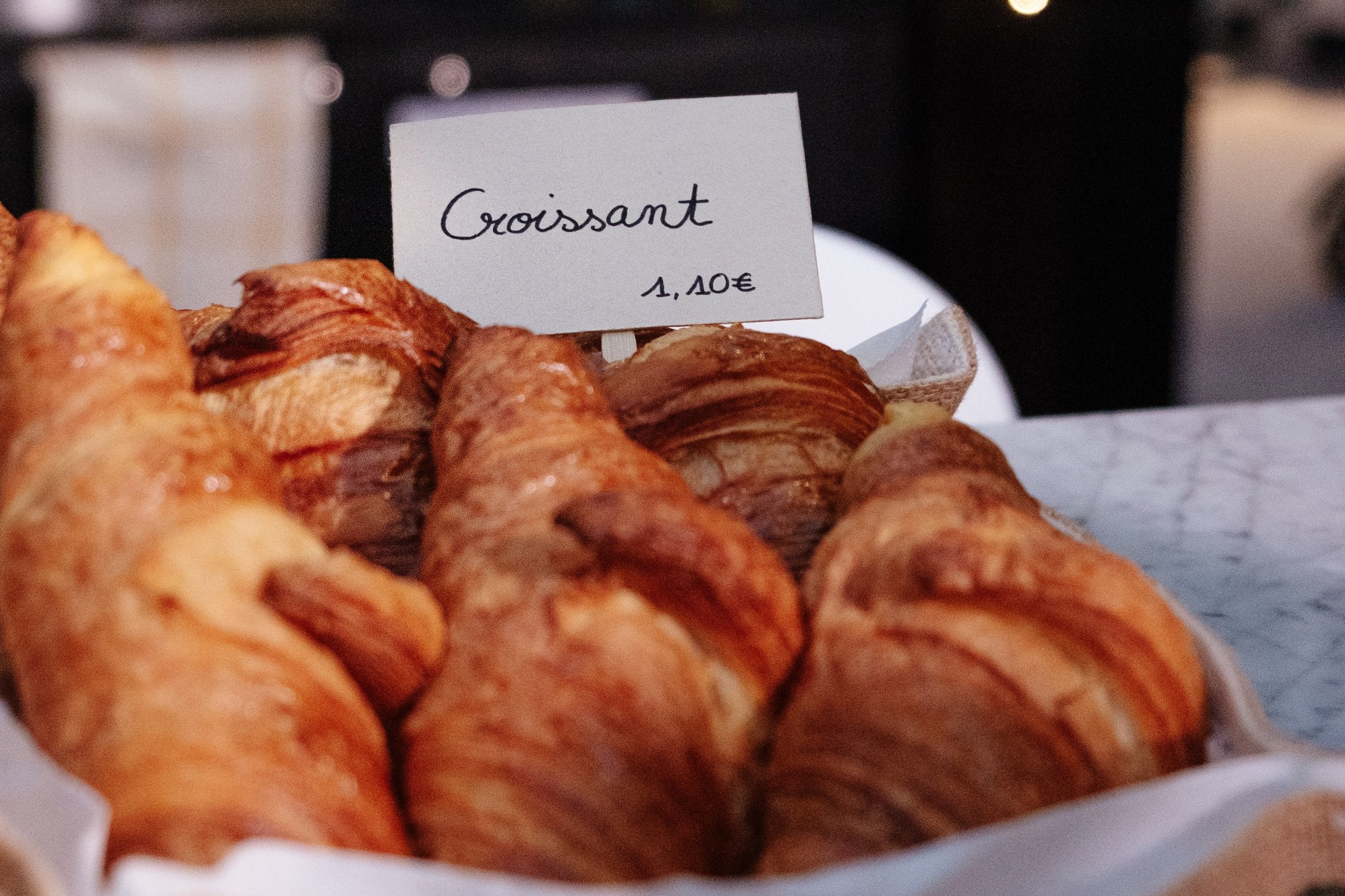One Year of (Sort of) Learning French
Like many people in the UK, I studied French in school. I liked French. I thought it was really fun to speak another language, to talk with people, and to try and listen to what was going on in a new country. (Still do!)
When I was 14 we went on a school exchange to the city of Reims, in northeastern France. I was paired with a boy, which I’m sure some 14-year-olds would find very exciting but which I found unbearably awkward. He was very sweet and we completely ignored each other.
I also realised immediately that I didn’t need to speak any French with him, because he spoke fluent English, having lived in the UK until the age of 8. I did, however, get to speak some French with his mum.
Here are some examples of my French ability at the age of 14, to give you an idea.
We visited Riems cathedral and, in the car on the way home, I said “ç'était grand et belle” (it was big and beautiful). My exchange partner’s mum heard and understood me, which was very exciting.
I also remember that her other son called the house, and I asked “Pierre téléphone souvent?” (“does Pierre phone you often?”) and the mum laughed and said no, not really.
So, I guess we could say that my French was basic but enthusiastic. Probably, “Pierre téléphone souvent?” is not a grammatically correct sentence, but I didn’t care then and I don’t care now. She understood me! She laughed!
That was nearly 20 years ago, and I didn’t learn any more French until, at some point in lockdown, I decided on a whim to take some one-to-one lessons with online teachers. Here are some things I learned about French, about language learning, and about myself.
Holy merde, some textbooks are boring
I bought some French textbooks, but I didn’t use them very much because I found them really deathly boring. I also found that French grammar didn’t stick in my head from trying to do textbook exercises. So, I mostly ignored them and just tried to read other things in French. This was surprising to me, because as a student I quite like Japanese textbooks.
…but other books are fun!
There are lots of easy short stories out there:
*Links with an asterisk are affiliate links, which means I may earn a small commission when you click through and buy the book. Thanks for your support!
If you’re interested in Japanese short stories, there are lots of similar books of short stories available. Or you could read Tadoku books!
Routine is my friend (it might be yours too?)
During various national lockdowns, I had a regular Sunday morning zoom call with my brother where we’d sit and “do productive things” together. I used this time to read French books and watch French TV. It was a standing weekly appointment, so I didn’t have to plan it in. It was just what I did on Sunday mornings.
Making regular time to practise is one of the best things you can do to learn a language.
TV, TV, TV
I watched loads of French TV last year. If you have a basic knowledge of a language, you can probably watch TV in your target language, with the subtitles in that target language too. Netflix is great for this, because there are so many languages available! I watched all of Call My Agent (Dix pour cent) and Lupin in French, with French subtitles. I didn’t understand everything, but I got the gist of what was going on.
I know what you might be thinking. “But reading French is easier than reading Japanese!” You’re not wrong. If watching Japanese TV with Japanese subtitles is too hard at the moment, you could watch with subtitles in your native language.
I also watched a lot of Spiral (Engrenages), although that’s on BBC so it’s hard-subbed (i.e. you can’t turn the subtitles off, or change the language) with English subtitles. Spiral is a police and legal procedural, so I think it would be too hard for me to watch with French subtitles anyway.
Importantly, these are all TV shows I would happily watch, even if I wasn’t trying to get listening practice. Find something you enjoy, and keep at it.
The power of input
What do reading French books and watching French TV have in common? They’re input activities.
Listening and reading are input activities - you take in the language and (hopefully) learn some of it.
Speaking and writing, on the other hand, are output activities - you produce (i.e. use) the language you have.
Although it’s important to practise speaking, without large amounts of input, you can’t produce good-quality output.
Try different types of lessons and teachers
I had lessons on italki with various different teachers. Most were very good. Some weren’t such a good fit.
I’m a language teacher, and I have quite specific expectations from teachers I work with. I don’t like it when they’re late, or don’t come at all with no explanation. I don’t like it when they set me homework and then don’t check it. Maybe you wouldn’t mind that, but I found this annoying and unprofessional, and didn’t book with those teachers again.
The most successful lessons were the ones where I felt relaxed. Sometimes we’d chat for 25 minutes, then do a bit of hasty grammar for 5 minutes. I’m on board with that.
Progress will happen, but it takes time
At first, I couldn’t use any past tenses in French at all. I didn’t really care, but my teachers seemed to.
It can be tempting to think that if you go away and practise something, you’ll have mastered it by the next lesson, but ideas take time to “bed in”.
Overall, I felt fairly relaxed about the whole thing. If I keep plugging away at French, and practising, I’ll get better. If I only practise a bit, then progress will be slow. That’s ok too.
Speak and be heard
As a teacher, I’m so pleased when my students want to share their lives with me: to tell me about their day, their dreams, their fears, how their cat always eats the butter off their breakfast in the morning.
I really enjoyed re-learning some French, and it made me think about my teaching a lot - how it feels to be corrected; to not understand an explanation; to falteringly, finally, speak and be heard.
Isn’t that what we all want - to be heard and understood?

